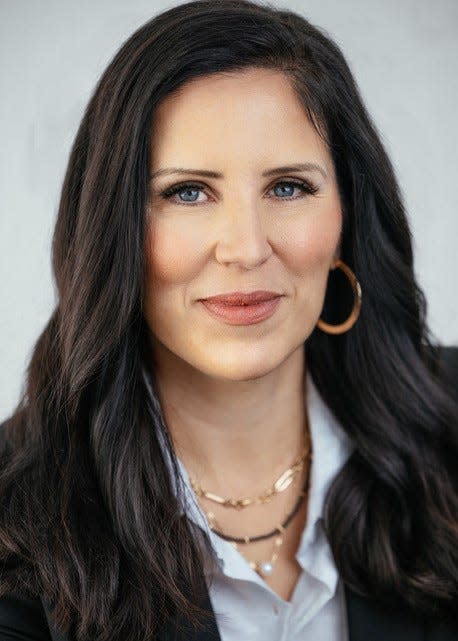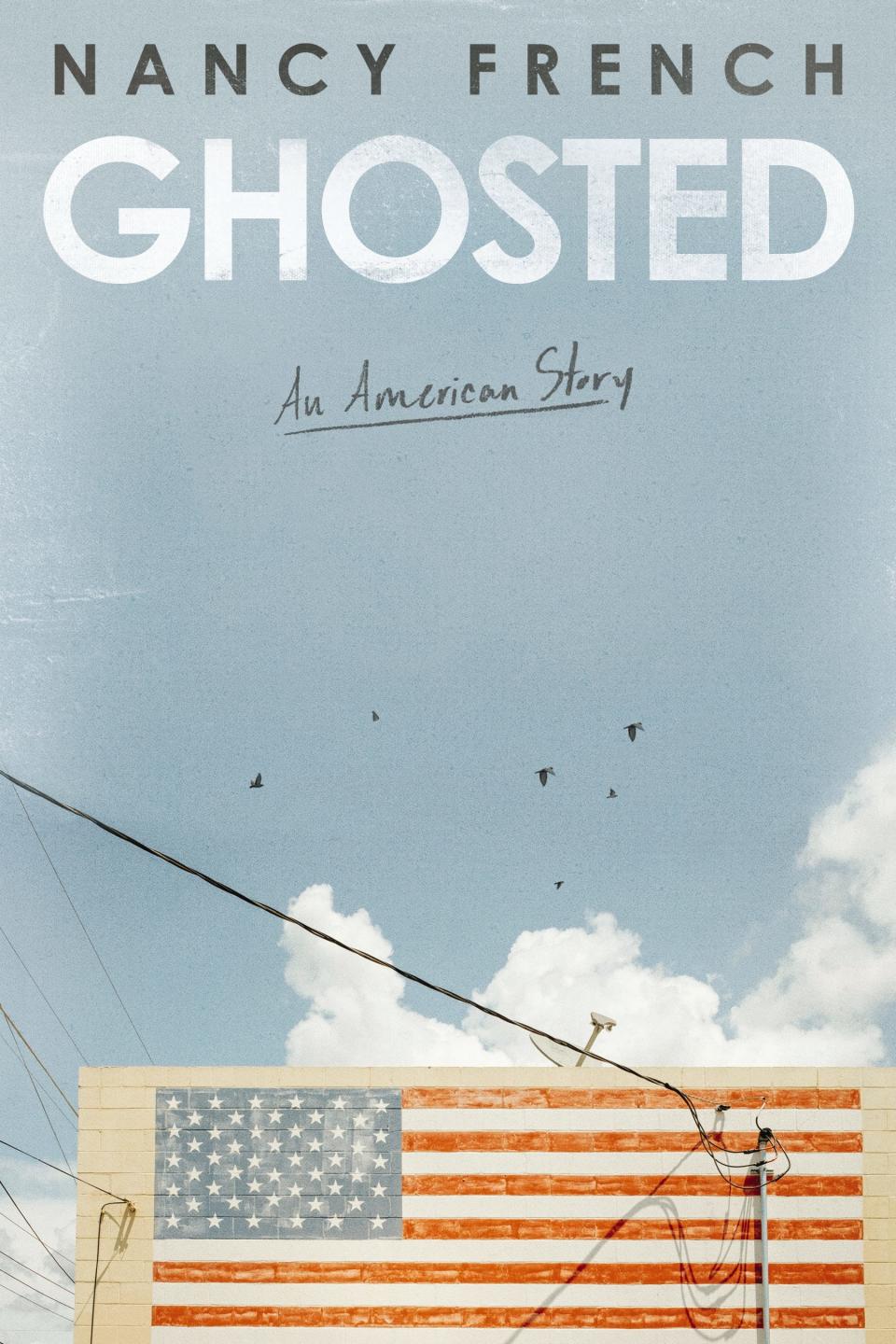How writer Nancy French's public fight against abuse eroded her loyalty to the church, GOP
- Oops!Something went wrong.Please try again later.
Nancy French at one point was certain about the voice she had and the home she had for her views and ideas. But now, she's not so certain.
As a ghost writer for Republican royalty and married to a prominent conservative writer and lawyer — David French, a New York Times opinion columnist who previously considered a bid for the GOP presidential nominee — recent hostility from the right toward the Frenches has rattled her loyalty to the institutions in which she once found aligned with her values.
“We’re constantly surrounded by evil, and we don’t detect it. We’re also constantly surrounded by goodness, and we don’t detect it,” French, author of a new memoir titled “Ghosted: An American Story,” said in an interview. “And we misperceive one for the other.”

A turning point was when French wrote a Washington Post opinion column in 2016 that denounced Republicans who defended Donald Trump against outcry over sexual assault allegations. That column was also one of the first major instances of French publicly sharing her personal story as a sexual abuse survivor.
Despite the pushback to her column, French’s experience speaking up about sexual abuse emboldened her to keep writing about the issue. She went on to investigate allegations of sexual abuse and cover-up at Kanakuk, the nation’s biggest Christian summer camp based in Branson, Missouri, in a news series for the Springfield News-Leader and USA Today.
French's memoir traces this journey from a life of lesser notoriety accompanied by widespread political allyship to asserting her own voice publicly but at the cost of social connections and a sense of security. French, who lives in Franklin, shared more about her reasons for writing the memoir and the broader ideas she hopes will resonate with readers.
This interview has been edited for length and clarity.
The Tennessean: Your memoir chronicles many iterations of your sense of self based on where you lived and your social networks. Where do you currently find yourself?
Nancy French: I don’t even know where I would be, where people would categorize me. If I lived in New York City again, people would say "You’re such a conservative." But here everyone looks at me and says, "You’re such a lib." It’s shocking and weird because I’m the same person. I haven’t changed at all, but the entire ground shifted. I love God but I’m hanging onto Christianity with my fingernails.
You still identify as a Christian but are also disillusioned with the church due to your experience as an abuse survivor and reporting on Kanakuk. What’s behind that?
The church ignored me and allowed me to be abused. Then years later I’m saying, "Hey church, these people are being abused" and they had the same response. It was so awful.
It’s a similar dynamic with how you feel about the Republican Party, yes?
I’ve lived long enough to see all the iterations of the Republican Party’s posturing on sexual issues. At one point, they were for traditional family values. Now, they’re taking the side of rapists and pedophiles.
So, it’s this process of dying to all of that and grieving all the institutional malfeasance that has occurred.

On the other hand, your memoir details how your efforts to expose abuse led to an opportunity to stand up for yourself. Talk more about those events, from when you were reporting on Kanakuk to pursuing accountability for the man who abused you after you learned he was a schoolteacher.
Kanakuk victims speaking out was so empowering. Then when my predator popped up and I needed to deal with that, they (Kanakuk victims) were like…"You gave us our voice back. Maybe it’s time for you to get your voice back."
I had contacted the school he taught at years before, and they had ignored me. But this time, I knew how to present evidence. I had all this evidence and just gave it to them. He resigned voluntarily within a week. Later, I worked to get his teaching license revoked. So, there was some power in that.
By sharing these stories in your memoir, what’s the deeper message you hope to communicate to readers?
There’s so much value in seeing what other people see. Outsiders don’t feel welcome. I didn’t know that because I was insider and suddenly, I was an outsider.
That’s maybe the story of the book: embracing the alienation and the homelessness you feel because it can be a sacred and good place. Maybe it’s the right place to be when times are so terrible.
Other recent faith-related book Q&A: How contemporary Christian music helped spread evangelicalism and Nashville’s role in it | Q&A
Liam Adams covers religion for The Tennessean. Reach him at ladams@tennessean.com or on social media @liamsadams.
This article originally appeared on Nashville Tennessean: Nancy French talks new book, fallout with church, Republicans

